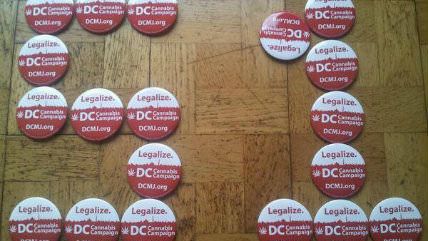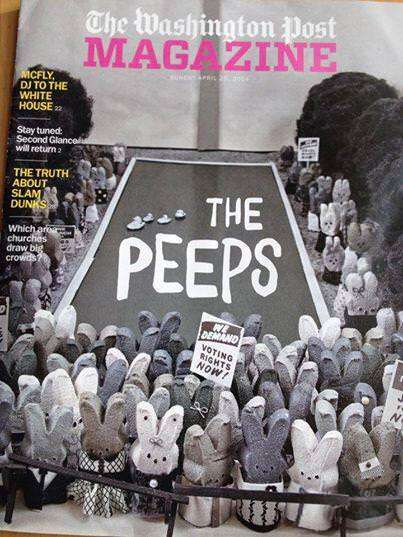Will Congress Keep D.C. From Decriminalizing Marijuana?


Congress may move to block Washington, D.C.'s efforts to decriminalize marijuana possession. The District Council voted for decriminalization in March, bringing the punishment for carrying small amounts of pot in line with the price of a city parking ticket. Every piece of legislation passed by the D.C. Council is subject to congressional approval, a process that the Washington City Paper says "typically passes without much fanfare." But because of the controversial nature of marijuana decriminalization—and the fact that it clashes with federal law—this particular D.C. law is drawing stronger scrutiny, including a House subcommittee hearing Friday at which legislators expressed their doubts.
Rep. John Mica (R-Fla.), a member of the House Committee on Oversight and Government Reform, called the hearing, saying it was an attempt to address differences between federal and D.C. laws. The new D.C. law, which could take effect in July if approved, would end criminal penalties for possessing an ounce or less of marijuana—currently a crime punishable by up to $1,000 and six months in jail. Under the new rules, possession would result in a $25 fine.
At Friday's hearing, Mica—brandishing a fake joint—said he hadn't yet decided whether Congress should approve the law. The "joint" was there to illustrate what Mica evidently finds a scary proposition: Under D.C. decriminalization, people could walk around with 20 of those babies and not even get thrown in jail for months.
D.C.'s notorious racial disparities in drug arrests and prosecutions were a rallying cry for decriminalization advocates. But Mica said said he's "not certain that changing the penalty in the District of Columbia is going to benefit that population that much."
After the hearing, Micah told AP his views on marijuana decriminalization were "evolving." No such potential change of heart is coming from Rep. John Fleming (R-La.), who told CQ Roll Call he intends to introduce a House resolution to block the District's decriminalization law. Fleming apparently fancies himself sort of marijuana decrim-avenging superhero:
"Any place that I can have a say—whether it's nationally, whether it's individual states, or even in the District of Columbia—I'm going to speak out about the dangers of marijuana," said Fleming. He also claimed that some of his libertarian-leaning colleagues were coming around to his views on marijuana, proving Fleming is either a liar or a little bit fuzzy on reality.
If Congress does block the decriminalization law, it wouldn't be the first time it interfered with the will of the people of D.C. and their elected officials when it comes to marijuana: In 1998, D.C. voters approved a medical marijuana referendum that Congress prevented from taking effect for 11 years. David O'Neil, acting assistant attorney general with the Justice Department, said his agency would treat D.C. the same way it treats other states that have decriminalized marijuana, by focusing on large-scale drug trafficking and distribution or drugs on federal property.


Show Comments (25)